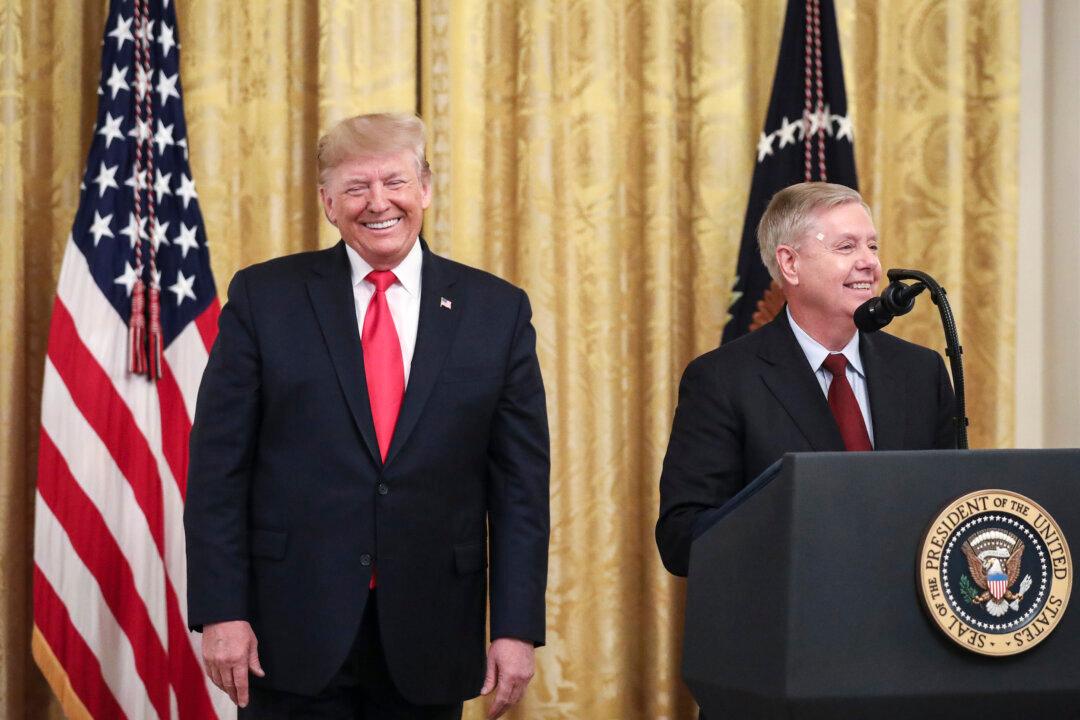Sen. Lindsey Graham (R-S.C.) warned there may be “riots in the streets” if former President Donald Trump is prosecuted amid an investigation into allegedly classified documents that were taken by FBI agents at his home earlier this month.
“If there’s a prosecution of Donald Trump for mishandling classified information, after the [Hillary] Clinton debacle … there’ll be riots in the streets,” Graham told former South Carolina congressman Trey Gowdy on Fox News’ “Sunday Night in America.” Graham appeared to be referring to an investigation into Clinton’s email server, which dominated headlines during the 2016 election.





